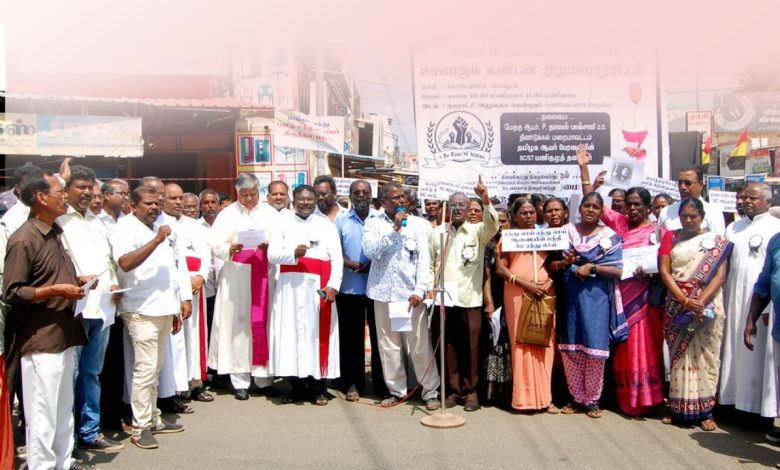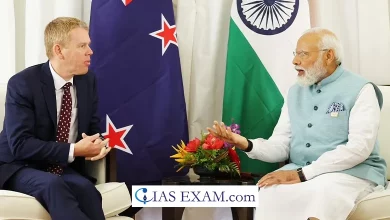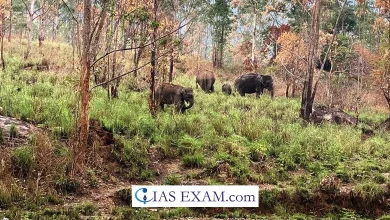Dalit Christians-exclusion by society, church, state
Syllabus- Gs paper-1 (salient features of Indian society), Gs paper-2(social empowerment)

Context:- A commission led by the former Chief Justice of India, K.G. Balakrishnan, was established by the Union Government last year to look at the potential of granting Dalit Christians SC status.
Dalit community
- For many years, even for many centuries, people within society have discriminated against the Dalit community.
- The dalits faced discrimination in terms of where they could go, which occupations they could receive, and where they could go for education.
- Even while dalit weddings will take place, they have also been prohibited in certain locations in particular communities, there are still some areas in India where dalits are not allowed to participate in weddings or attend to public places.
Dalit Christians
Many members of the dalit community believed that if they converted to another religion and stopped following Hinduism, they could be protected from discrimination in the future.Over the past few decades, a large number of dalits have converted to various religions, including Sikhism, Buddhism, and Christianity.who converted into Christianity those are called dalit Christianity.
Reservation
The government has made it a priority to provide reservation benefits to scheduled castes and scheduled tribes in order to uplift the Dalit community. However, reservation benefits to scheduled castes that are provided to the Dalits do not apply to Dalits who become Christians.
Therefore, once a dalit changes to Christianity, he or she is not eligible to receive the benefits provided by India’s quota rules.
Features of this Article:-
Millions of Hindu Dalits turned to more egalitarian religions, like as Christianity, in an effort to avoid this horrifying kind of discrimination and experience the equality these religions offered.
- In this article, the dalit Christians in India are discussed along with their identity and demand for scheduled caste reservation.
- When a dalit converts to another religion, such as Buddhism or Sikhism, they still have the right to get reservation advantages, but when they become Christians, they do not receive these benefits. This is the form of discrimination that we are focusing on.
The issue that dalit Christians face:-
- B.R. Ambedkar was the one who said, “Hinduism is a veritable chamber of horror to the ‘Untouchables’.”
- Although becoming Christians to escape casteism, discrimination, and other social ills, Dalits have not been able to achieve the equality they sought.
- Ashish Nandy claims that caste-based discrimination only exists in Hinduism, Sikhism, and Buddhism in accordance with the Indian Constitution.
- Assuming that Christianity is a “foreign import,” Dalit Christians are not allowed to take advantage of these benefits
- However, this can raise concerns about their democratic citizenship.
Intersectional burdens
- Investigating the problem the community is facing right now can be done using the theory of intersectionality.
- The single-axis structure used by the Indian state and its laws, which preserve separate categories through the legal system while discriminating against populations whose categories overlap, as Dalit Christians.
- Due to their exclusion from society, the church, and the government, Dalit Christians experience structural intersectional discrimination.
Intersectionality and identity
- It refers to how someone perceives oneself in relation to many social groupings and categories that exist in society, such as gender, caste, religion, and ethnicity.
- According to the Indian state, a Hindu Dalit who converts to Christianity no longer can be considered as a Dalit because Christianity does not recognize casteism.
- This means that they lose their Dalit identity and are pushed into intersectional invisibility.
A ‘single axis’ framework
The single-axis framework of Indian law does not adequately protect communities with multiple identities, such as Dalit Christians.
Soosai, a dalit Catholic shoemaker, appealed the Supreme Court of India for an extension in setting up a kiosk on a platform in Madras supplied by the state government, so that he may compete with Hindu shoemakers.
The court dismissed the case, holding that it is required to prove that the disadvantages and handicaps incurred as a result of such caste membership in the social order of origin hinduism remain in their apperessive harshness in the new environment of a different religion group.This suggests that the Dalitness of Soosai was completely ignored when the single axis framework’ was used.
Commissions on the issue
- The Union Government established a commission led by former CJI K.G. Balakrishnan to investigate the potential of granting Dalit Christians SC status.
- The Justice Ranganath Misra Commission (2007) suggested allowing Dalits who converted to Christianity to get reservation advantages under the SC quota.
Conclusion
Due to the state’s refusal, the single-axis’ communal framework of the statute has resulted in Dalit Christians being omitted from the SC list despite evidence in favour of such a judgement.





.png)



